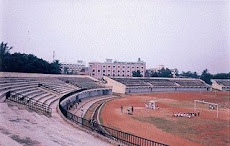- Nearly 24,00,000 hatchlings had entered the sea and lakhs will follow in the coming days
RUSHIKULYA ROOKERY (GANJAM, ORISSA): Mass hatching of Olive Ridley turtle eggs has begun at this major nesting site under the shroud of environmental degradation caused by oil spill from a ship recently.
The mass hatching, which started on May 01 night, is expected to continue for next two to three days.
Berhampur Divisional Forest Officer Ajay Kumar Jena, who is monitoring the protection of the hatchlings till May 02 morning, said eggs in around 30,000 nests on the coast had hatched.
Around 1,55,000 Olive Ridleys nested along the coastline near the Rushikulya Rookery in March and the eggs have started hatching after 45 days. More than 100 eggs were laid into every nest. On an average, however, around 80 hatchlings came out of each nest, Mr. Jena said.
Nearly 24,00,000 hatchlings had entered the sea and lakhs will follow in the coming days.
The mortality of the hatchlings is usually quite high. Experts say only one in a 1,000 survives to become an adult. Environmental activists like Soumya Tripathy of Greenpeace activist feel the oil spill that occurred on April 13 may increase the mortality of the hatchlings this year. Mr. Jena said though the surface of the sea near the nesting site was monitored, no residue of the oil spill was found.
However, marine scientist and Vice-Chancellor of Berhampur University Prof. Bijay Kumar Sahu said the oil spill would have had be a serious impact on the marine flora and fauna near the rookery, especially on plankton and small organisms that were the food of the turtle hatchlings. Mr. Sahu and Mr. Tripathy said there was immediate need for a detailed multi-discipline faculty study on the long-term impact of the oil spill on the marine environment.
As part of measures to protect the hatchlings, the bright lights of the industrial units and townships near the area have been ordered to be shut down during the hatching period. The hatchlings get attracted to light sources. Nylon nets were in place over a distance of three km at the nesting beach to stop hatchlings from straying towards the land.
Volunteers of the Rushikulya Sea Turtle Protection Committe an organisation comprising people from villages near the rookery involved in turtle protection collected stray hatchlings and released them into the sea.
Source: The Hindu


















.jpg)


















































No comments:
Post a Comment